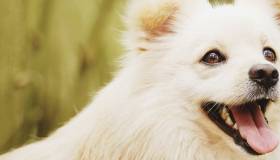
April 26, 2022 – Betty White Ludden had a life-long love of animals, a passion she channeled through her tireless efforts to improve their health and well-being. At Morris Animal Foundation, we are grateful for Betty’s long friendship and her support of veterinary health research. While we mourn her loss, we also celebrate her life and all the good work she did for animals.
Betty first joined Morris Animal Foundation in 1971. Her tenure encompassed 24 years as a Board Trustee and three years as Board President. During that time, Betty wore many hats at the Foundation, including serving as President of the Canine Division and assisting with countless fundraisers – from fashion shows (with pets, of course) to personally signed Christmas ornaments for donors. After 40 years, Betty stepped down as one of the longest serving members of the Board and was honored as President Emeritus for her outstanding volunteer service and guidance to the Foundation.
Science Supporter
Betty White was not only a Board Trustee, President and spokesperson for the Foundation, she also was a science-savvy donor. Through the Foundation, Betty befriended and followed the work of countless animal health researchers. She was dedicated to science that benefits animals.
Betty personally sponsored more than 30 Foundation-funded animal health research studies that have improved the lives of cats, dogs, horses and wildlife, as well as informed policies that helped protect vulnerable species. Her support led to:
- Major breakthroughs in postsurgical pain management.
- Research that reduced sea otter deaths.
- Improved diagnosis of congestive heart failure in dogs and deadly blood clots in cats with heart disease.
- Improving length of dog lives by launching a major canine cancer campaign to fund cancer research.
- Innovative ways to improve the health and reduce disease of shelter cats.
Animal Health Advocate
Betty lost many animals over her lifetime, some to old age, some to diseases such as cancer. She knew what it took to provide pets with the best care possible.
In one of the last Board meetings Betty attended, she passionately spoke to attendees about how there were still too many unanswered questions in animal health and the way to get there was to invest in research. Betty noted the lack of animal health research funding and the great need for better diagnostics and treatments for the pets and animals we love.
For Betty, research was a word of hope for animals. Research was a way to continually improve veterinary care of animals, whether in your home or in wild places. Research was a way to give animals a healthier tomorrow.
Wildlife Enthusiast
While Betty was passionate about dogs and cats, she had a soft spot for wildlife as well and knew they needed help, too. During her tenure on the Board, the Foundation expanded its funding to include wildlife, especially species in crisis, from mountain gorillas in Africa to sea otters in California.
Betty had a special connection to wildlife. Dayle Marsh, former Trustee who served on the Board with Betty, recalls a Board meeting outing feeding the giraffes at the zoo.
“There was this huge male giraffe in the background who [apparently couldn’t] be bothered with us. Then Betty’s little truck pulled up and she got out. The male giraffe looked right at her as she walked over to the fence. She had no food, but the male giraffe walked across the pasture, leaned his head over the fence as Betty reached up, and he touched her hands. That giraffe was on the other side of the compound. That’s just how she was with all the animals.”
In 2010, Morris Animal Foundation established the Betty White Wildlife Fund – honoring Betty’s passion for wildlife – and Betty was the first donor.
This fund is active today and supports wildlife research to address pressing health concerns for birds, reptiles, amphibians, land and ocean mammals and even tiny invertebrates. Early studies supported by the fund include boots-on-the-ground investigations of mass die-offs of Saiga antelope in Mongolia, studies of dolphin health following the massive Deepwater Horizon oil spill in the Gulf of Mexico, and preventing sea lion die-offs off the coast of California.




